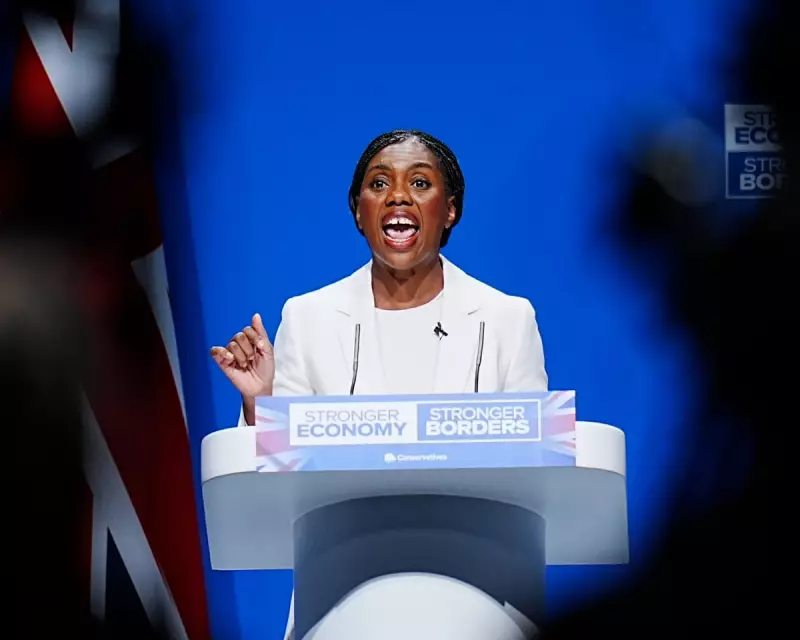
In what many are calling the most significant speech of her political career, Business Secretary Kemi Badenoch delivered a stark vision for Britain's future at the Conservative Party conference that has left Westminster divided and political commentators buzzing.
A Conservative Manifesto Unlike Any Other
Badenoch's address wasn't merely another political speech—it was a comprehensive philosophical treatise on the future of conservatism in Britain. She positioned herself as the standard-bearer for a new form of Toryism, one that rejects what she termed "the managed decline consensus" of the political establishment.
The Business Secretary didn't shy away from controversial territory, taking direct aim at what she described as "the blob"—the network of civil servants, quangos, and special interests that she claims stifles innovation and progress in Britain.
The Economic Vision: Radical Reform or Reckless Gambit?
At the heart of Badenoch's address was an ambitious economic programme that promises to:
- Slash business regulation and bureaucracy
- Accelerate digital transformation across government services
- Create new freeports and investment zones nationwide
- Reform planning laws to boost housebuilding and infrastructure
Her critics were quick to pounce, labelling the proposals as "fantasy economics" that ignore the practical realities of governance. Yet her supporters argue that only such bold thinking can address Britain's productivity crisis and sluggish growth.
The Cultural Battle Lines
Perhaps most controversially, Badenoch waded directly into Britain's culture wars, defending her stance on gender identity politics and what she termed "common sense conservatism." She positioned these issues not as side shows but as fundamental to the Conservative mission of preserving British values and institutions.
The reception among delegates was electric, with multiple standing ovations interrupting her speech. However, the question remains whether this enthusiasm within the conference hall will translate to broader electoral appeal.
Leadership Ambitions Laid Bare
While Badenoch stopped short of declaring leadership ambitions, the subtext was unmistakable. This speech positioned her as the natural heir to the Conservative throne, offering a clear ideological alternative to both the Sunak administration and any potential Labour government.
Her vision represents a fundamental break with the Cameron-Osborne era of modernisation, instead embracing what some commentators are calling "disruption conservatism"—a belief that only by breaking existing systems can Britain achieve transformative change.
The Electoral Calculus
The political timing is crucial. With the Conservatives trailing significantly in the polls, Badenoch's speech represents a high-stakes gamble. She's betting that the British public wants radical change rather than cautious incrementalism, and that the Conservative base will rally behind a candidate unafraid to take on sacred cows.
As one senior Tory MP remarked anonymously: "This is either the speech that saves the Conservative Party or the one that condemns it to a decade in opposition. There's no middle ground."
What's certain is that Badenoch has firmly established herself as the standard-bearer for the Conservative right, setting the stage for a fascinating political battle regardless of the next election's outcome.





